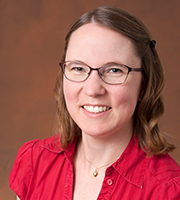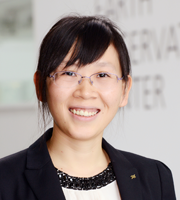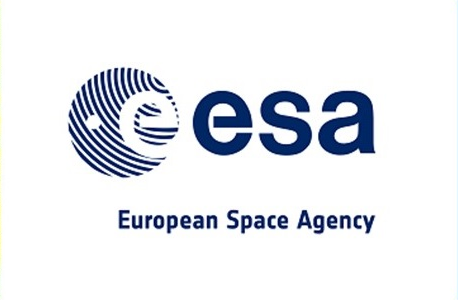SPACE AND ARTIFICIAL INTELLIGENCE
ONLINE CONFERENCE, September 4th, 2020
Organized by CLAIRE and ESA, in association with ECAI2020
KEYNOTE TALKS AND SPEAKERS
Title: MACHINE LEARNING FOR SPACE AND PLANETARY EXPLORATION
Abstract: Today's spacecraft serve as our robotic explorers. They orbit the Earth, visit other planets, and drive on the surface of Mars. Early spacecraft collected data and sent it back without examining the contents. Today we have developed machine learning and data analysis methods that allow spacecraft to assess the data and its contents prior to transmission, so that the most interesting or valuable observations are sent back first. The Mars Science Laboratory rover is able to select its own targets for the ChemCam laser spectrometer and collect new data based on its decisions. We have also developed methods for novelty detection to explore the unknown, like the surface of Jupiter’s moon Europa. The same techniques help us to quickly sift through massive archived data sets to identify features of interest as well as unusual or unexpected observations that can refine or overturn our current understanding of planetary processes and the evolution of the universe.

Bio: Dr. Kiri L. Wagstaff is a principal researcher in machine learning at NASA's Jet Propulsion Laboratory and an associate research professor at Oregon State University. Her research focuses on developing new machine learning and data analysis methods for use onboard spacecraft and in data archives for planetary science, astronomy, cosmology, and more. She earned her M.S. and Ph.D. in Computer Science from Cornell University, followed by an M.S. in Geological Sciences (University of Southern California) and an MLIS in Library and Information Science (San Jose State University). She received the Lew Allen Award for Excellence in Research, the NASA Exceptional Technology Achievement Medal, and is Senior Member of the Association for the Advancement of Artificial Intelligence. She is passionate about keeping machine learning relevant to real-world problems.
Title: ARTIFICIAL INTELLIGENCE IN ESA: VISION, STRATEGY & APPLICATIONS
Authors: Alessandro Donati, Raffaella Franco, European Space Agency, Germany
Abstract: The European Space Agency has already started to investigate opportunities of exploiting emerging AI technology for the benefit of European space projects since early 2000. A series of successful applications, were initially focused in the area of telemetry based diagnostic and in operations planning and based on a variety of AI technologies. These results have positively contributed to accelerate the adoption of AI in all fields of possible applications, including spacecraft development, space operations, payload data exploitation and corporate applications. The presentation objective is to give the audience a comprehensive overview of today’s ESA vision on AI, of the ESA core activities with AI and of the identified AI domains and technologies of relevance for space. A series of examples of potential future applications will provide additional details on the work that will attend all of us in the near future. The presentation is also intended as introductory to the new issue of the comprehensive public ESA document “AI in Space”.

Bio: Alessandro Donati has 30 years of experience in satellite operations at the European Space Operations Centre of ESA in Darmstadt, Germany. He was involved with the ESA Manned Space Program as Ground Segment manager for the phase A and B of the Automated Transfer Vehicle (ATV). He joined the Cluster 2 mission flight control team and contributed to the Cluster 2 LEOP and Commissioning phase. In 2001 Alessandro founded and since then is leading a skunk-work style managed team of AI experts devoted to introducing and exploiting Artificial Intelligence technology in support of innovative space mission operations concepts. The operational tasks covered include planning, scheduling, diagnostic, resources management, behaviour modelling and forecasting. He co-hold two ESA patents related to AI applications for space. As of 2019 Alessandro is Deputy-Head of ESA’s Digital Technologies community, which includes Artificial Intelligence and member of the ESA/CLAIRE AI Special Interest Group on Space. Alessandro holds a Master of Electronic Engineering from the University of Rome La Sapienza.
Title: AI AND DATA SCIENCE IN EARTH OBSERVATION
Abstract: Geoinformation derived from Earth observation satellite data is indispensable for many scientific, governmental and planning tasks. Geoscience, atmospheric sciences, cartography, resource management, civil security, disaster relief, as well as planning and decision support are just a few examples. Furthermore, Earth observation has irreversibly arrived in the Big Data era, e.g. with ESA’s Sentinel satellites and with the blooming of NewSpace companies. This requires not only new technological approaches to manage and process large amounts of data, but also new analysis methods. Here, methods of data science and artificial intelligence (AI), such as machine learning, become indispensable. In this talk, explorative signal processing and machine learning algorithms, such as compressive sensing and deep learning, will be shown to significantly improve information retrieval from remote sensing data, and consequently lead to breakthroughs in geoscientific and environmental research. In particular, by the fusion of petabytes of EO data from satellite to social media, fermented with tailored and sophisticated data science algorithms, it is now possible to tackle unprecedented, large-scale, influential challenges, such as the mapping of global urbanization — one of the most important megatrends of global changes.

Bio: Xiaoxiang Zhu is the Professor for Signal Processing in Earth Observation at the Technical University of Munich, the head of the department Earth Observation Data Science at the German Aerospace Center, the Director of the international AI future Lab “AI4EO”, the co-spokeswoman of the Munich Data Science Research School (MUDS), and the head of the Helmholtz Artificial Intelligence – Research Field "Aeronautics, Space and Transport". Her main research interests are remote sensing and Earth observation, signal processing, machine learning and data science, with a special application focus on global urban mapping.
Title: ARTIFICIAL INTELLIGENCE IN SPACE IN AN AGE OF DEEP INDUSTRIAL TRANSFORMATION
Abstract: Artificial intelligence is central to space activities. This place is all the more important since the main purpose of these activities is the design, construction, launching, placing in orbit and operation of remote space objects, which are called upon to operate in a hostile environment with which they must be able to interact with or without the help of ground stations. However, artificial intelligence in space is still limited to the implementation of techniques inspired by deep learning, i.e. machine programming. Time still seems far away when we will see perfectly autonomous objects, capable of evolving by themselves and spontaneously choosing the solution imposed by the difficulties they face. Will the transformations that the space sector may undergo post-Covid-19 allow us to go beyond what is currently being done in the field of artificial intelligence in space? Will they not be opposed to it? Will artificial intelligence in space continue to advance?

Bio: Professor Rapp lectures at the Law School of the University of Toulouse, where he has been holding a tenure position from 1988, and teaches international business law and competition law. He acts currently as the scientific director of SIRIUS (Space Institute for Research on Innovative Uses of Satellites), an academic chair created in 2013 by its three sponsors: CNES, Airbus Defense and Space (ADS) and Thales Alenia Space (TAS). Professor Rapp is a member of several international scientific societies (including the International Institute for Space Law) and authored – to date - 10 books and a hundred scientific communications on various legal aspects of space communications. As an expert of legal issues relating to space matters, he has acted as an expert-consultant to several French and international organizations, including the French Conseil d’Etat (Council of State), the Academy of International Law in The Hague, and the International Telecommunications Union. Professor Rapp was awarded the Academic Palms (Officer, 2009) and is a Chevalier of the Legion d’Honneur (since 2011).
Title: AI, SPACE DATA AND THE PROMISE OF IMPROVED PLANETARY STEWARDSHIP
Abstract: We now have the unprecedented opportunity to monitor, predict and simulate our planet in near real-time. This has been enabled by twin revolutions; firstly the emergence of high-resolution, high-temporal and hyper-spectral geospatial data and secondly, the emergence of cloud compute and trusted, democratised AI infrastructure capable of learning from both data and physics. This talk will discuss the implications and opportunities unlocked by these two revolutions, both in terms of the “stack” required and some emerging applications, such as AI’s predictive capabilities - tornadoes and droughts, but also dynamic ‘just in time’ applications, such as near-real-time flood segmentation, bushfire mitigation and post-disaster damage assessment.

Bio: James is Director of NASA’s Frontier Development Lab (FDL) an AI research accelerator based in Silicon Valley and FDL Europe, in partnership with European Space Agency (ESA). He is also a founder of the Open Space Agency (OSA) - which is dedicated to the democratization of space exploration through citizen science and open hardware. James is also the founder and CEO of Trillium Technologies - a technology contractor that specializes in the application of emerging technologies to grand challenges, such as climate change, violent extremism, prevention strategies for cancer and obesity, deforestation mitigation, climate resilience and planetary defense from asteroids.


